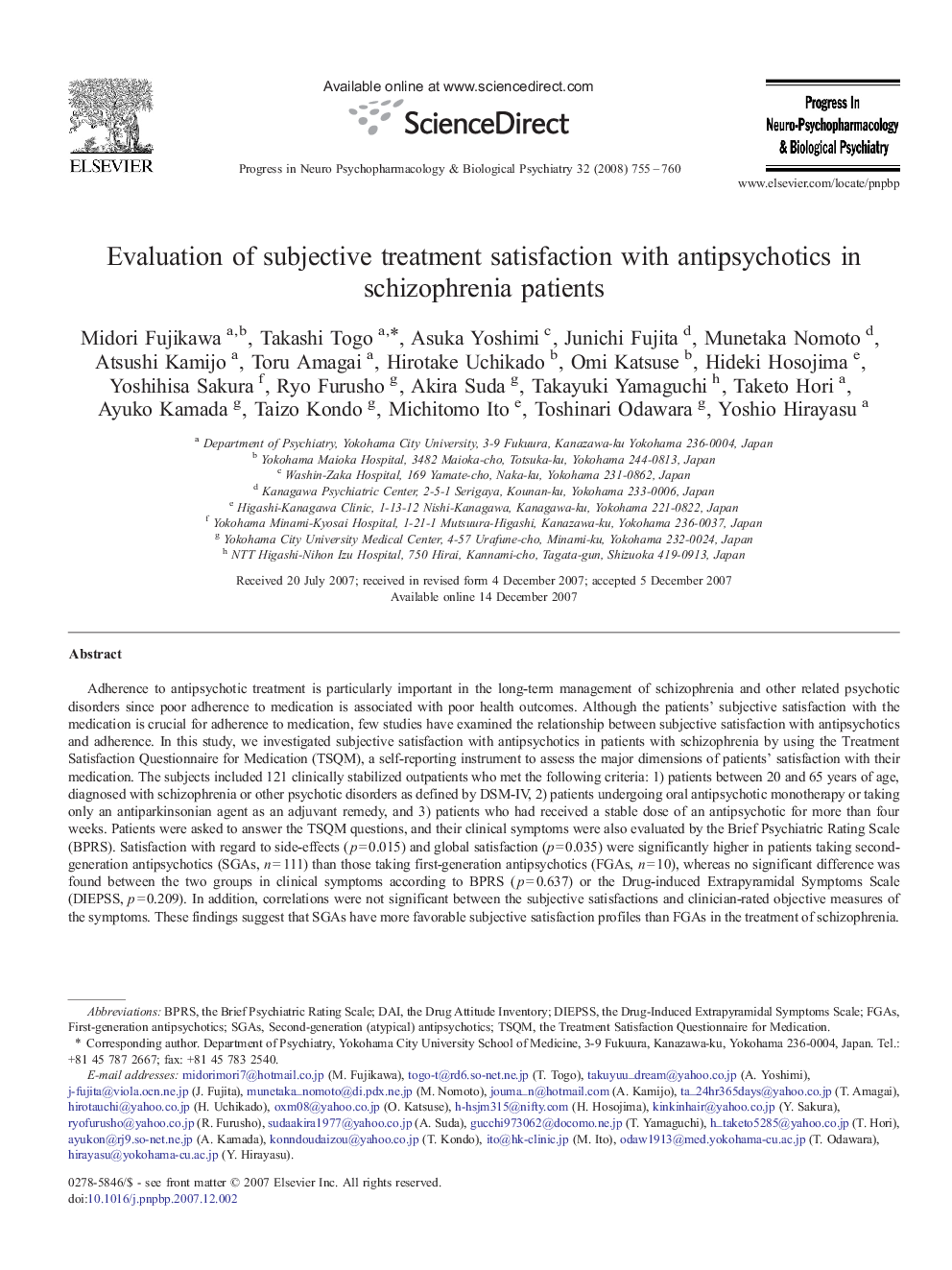| کد مقاله | کد نشریه | سال انتشار | مقاله انگلیسی | نسخه تمام متن |
|---|---|---|---|---|
| 2565857 | 1128068 | 2008 | 6 صفحه PDF | دانلود رایگان |

Adherence to antipsychotic treatment is particularly important in the long-term management of schizophrenia and other related psychotic disorders since poor adherence to medication is associated with poor health outcomes. Although the patients’ subjective satisfaction with the medication is crucial for adherence to medication, few studies have examined the relationship between subjective satisfaction with antipsychotics and adherence. In this study, we investigated subjective satisfaction with antipsychotics in patients with schizophrenia by using the Treatment Satisfaction Questionnaire for Medication (TSQM), a self-reporting instrument to assess the major dimensions of patients’ satisfaction with their medication. The subjects included 121 clinically stabilized outpatients who met the following criteria: 1) patients between 20 and 65 years of age, diagnosed with schizophrenia or other psychotic disorders as defined by DSM-IV, 2) patients undergoing oral antipsychotic monotherapy or taking only an antiparkinsonian agent as an adjuvant remedy, and 3) patients who had received a stable dose of an antipsychotic for more than four weeks. Patients were asked to answer the TSQM questions, and their clinical symptoms were also evaluated by the Brief Psychiatric Rating Scale (BPRS). Satisfaction with regard to side-effects (p = 0.015) and global satisfaction (p = 0.035) were significantly higher in patients taking second-generation antipsychotics (SGAs, n = 111) than those taking first-generation antipsychotics (FGAs, n = 10), whereas no significant difference was found between the two groups in clinical symptoms according to BPRS (p = 0.637) or the Drug-induced Extrapyramidal Symptoms Scale (DIEPSS, p = 0.209). In addition, correlations were not significant between the subjective satisfactions and clinician-rated objective measures of the symptoms. These findings suggest that SGAs have more favorable subjective satisfaction profiles than FGAs in the treatment of schizophrenia. Since it is often difficult to detect the difference by a traditional objective assessment of the patients, it is desirable that physicians pay attention to the patients’ subjective satisfaction in conjunction with their own objective clinical assessment.
Journal: Progress in Neuro-Psychopharmacology and Biological Psychiatry - Volume 32, Issue 3, 1 April 2008, Pages 755–760